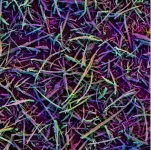(Press-News.org) KEY POINTS
Human judgement of food images is influenced by judgements that precede it
Experiment tested reactions of more than 600 people making food choices
Highly relevant given widespread use of Uber Eats or phone-based menus
Finding could assist treatments for eating disorders or assist with food marketing
Research at the University of Sydney has revealed that we don’t judge food simply on its merits but are influenced by what we have seen beforehand, a cascading phenomenon known as ‘serial dependence’.
The research, published today in the high-impact journal Current Biology, was conducted by Professors David Alais and Thomas Carlson in the School of Psychology at the University of Sydney working in collaboration with Professor David Burr at the University of Florence.
Their study shows when people rate food images for appeal and calorie content, the evaluation is not made in isolation. Instead, it is subtly biased towards the judgement that preceded it.
Serial dependence arises when people make a series of sequential choices. In the context of food, if a person rates a food as very appealing, they are likely to rate the next food image more favourably, regardless of its calorie content or appeal.
It works the other way, too: a preceding unappealing food makes a current food less appealing.
The findings could assist psychologists to develop treatments for people with eating disorders to eat more or less food, and may help marketers in the presentation of food menus.
Lead author Professor Alais said: “The experimental conditions for serial dependence are not very different from our everyday experiences with food images, such as when we scan a food delivery menu or browse a menu on our phone. Serial dependence, therefore, might be affecting millions of food choices every day.”
The researchers conducted experiments with more than 600 participants who rated various food images for both calorie content and appeal. The results revealed a clear pattern of serial dependence: participants’ ratings tended to follow their previous rating.
For instance, a high rating for one food item led to a higher rating for the subsequent item, creating a chain reaction of evaluations that are interconnected rather than independent.
While the study found that men tended to rate high calorie food slightly higher than women, the overall serial dependence effect was not sex dependent and was similar for all.
“This study highlights the cognitive biases that come into play when we evaluate food,” Professor Alais said. “Our brains are wired to assimilate information from previous stimuli, just as we might be drawn to a particular dish after seeing a similar one rated highly.”
Co-author Professor Carlson said: “Our previous work has shown that the visual brain encodes the perceived caloric content of foods in just milliseconds. It will be fascinating to see the interplay between these cognitive biases and visual processing in future work.”
Beyond the immediate interest to visual neuroscientists exploring how our brain processes images, this research has potential useful applications.
For food marketers and restaurateurs, understanding serial dependence could inform strategies to enhance the appeal of their menu offerings. By placing high-appeal items or calorie-rich foods in a sequence, they could influence consumer perceptions and potentially drive sales.
This research also has potential to play a role in clinical settings, particularly in addressing obesity, compulsive eating, bulimia and related eating disorders.
By recognising how previous food ratings can affect subsequent choices, cognitive behavioural therapies could be tailored to leverage these findings, helping people reshape their perceptions and decision-making processes around food.
This approach could promote healthier eating habits and support effective interventions for those struggling with eating disorders.
Professor Alais and his team have previously found similar visual trends for people perusing dating apps, or assessing the beauty of art work.
## ENDS ##
RESEARCH
Alais, D. et al ‘Positive serial dependence in ratings of food images for appeal and calories’ (Current Biology 2024). DOI: 10.1016/j.cub.2024.09.012
DOWNLOAD photo of Professor Alais and PDF of research at this link.
INTERVIEWS
Professor David Alais | david.alais@sydney.edu.au | Download photo at this link.
MEDIA ENQUIRIES
Katie Spenceley | katie.spenceley@sydney.edu.au | +61 402 165 322
DECLARATION
The researchers declare no competing interests. Researchers received financial support from the Australian Research Council and the European Research Council.
END
A team of scientists supported by the National Institutes of Health (NIH)’s The BRAIN Initiative®, including Davi Bock, Ph.D., Associate Professor of Neurological Sciences at UVM’s Robert Larner, M.D. College of Medicine, recently made a substantial advancement in neurobiological research by successfully mapping the entire brain of Drosophila melanogaster, more commonly known as the fruit fly.
The study, titled “Whole-brain annotation and multi-connectome cell typing of Drosophila,” recently published ...
Boston, MA – A new thought piece led by the Harvard Pilgrim Health Care Institute with collaborators from Duke University and Kaiser Permanente Washington Health Research Institute highlights the challenges facing healthcare researchers and decision makers in the quest to improve population health in a constantly evolving healthcare landscape. The authors offer strategies to enhance the effectiveness of pragmatic clinical trials and increase their impact on real-world healthcare settings.
The Viewpoint appears October 2 in JAMA.
Pragmatic clinical trials, designed to inform health ...
Inside every cell, inside every nucleus, your continued existence depends on an incredibly complicated dance. Proteins are constantly wrapping and unwrapping DNA, and even minor missteps can lead to cancer.
A new study from the University of Chicago reveals a previously unknown part of this dance—one with significant implications for human health.
In the study, published Oct. 2 in Nature, a team of scientists led by UChicago Prof. Chuan He, in collaboration with University of Texas Health Science Center at ...
Researchers at NYU Langone Health were awarded $1.6 million from the National Institutes of Health (NIH) to investigate changes in the eye that may indicate early signs of Alzheimer’s disease and Parkinson’s disease.
The award, OT2OD038130, recognizes the eye as a part of the brain and its role as a window into cognitive and visual health. After the initial $1.6 million award, the grant may renew an additional two years, for a total of $4.8 million as part of the NIH Common Fund Venture Program’s new Oculomics Initiative. Oculomics is a relatively new term to describe the integrative use of technology and ...
Groundbreaking Discoveries in Gamma-Ray Emissions from Thunderstorms
In the recent edition of Nature, groundbreaking results about the gamma-ray emissions produced during thunderstorms are presented. Overall, these findings reveal that gamma-ray emission from thunderclouds is much more complex, diverse, and dynamic than previously thought. Understanding these phenomena is crucial to uncovering the secrets of lightning.
Flickering Gamma-Ray Flashes: A New Discovery
Entitled “Flickering Gamma-Ray Flashes, the Missing Link between Gamma Glows and TGFs,” the paper by Østgaard et al. [2024] reports unique observations of a new phenomenon called Flickering Gamma-Ray ...
A new paper, “Differences in misinformation sharing can lead to politically asymmetric sanctions,” published today in Nature suggests that the higher quantity of social media policy enforcement (such as account suspensions) for conservative users could be explained by the higher quantity of misinformation shared by those conservative users — and so does not constitute evidence of inherent biases in the policies from social media companies or in the definition of what constitutes misinformation.
Written by ...
Endosymbiosis is a fascinating biological phenomenon in which an organism lives inside another. Such an unusual relationship is often beneficial for both parties. Even in our bodies, we find remnants of such cohabitation: mitochondria, the powerhouses of our cells, evolved from an ancient endosymbiosis. Long ago, bacteria entered other cells and stayed. This coexistence laid the foundation for mitochondria and thus the cells of plants, animals, and fungi.
What is still poorly understood, however, is how an endosymbiosis as a lifestyle actually arises. A bacterium that more or less accidentally ...
BUFFALO, N.Y. — A small University at Buffalo clinical trial has found that at low doses, lithium aspartate is ineffective in treating the fatigue and brain fog that is often a persistent feature of long COVID; however, a supplemental dose-finding study found some evidence that higher doses may be effective.
Published in JAMA Network Open on Oct. 2, the study was led by Thomas J. Guttuso, Jr., MD, professor of neurology in the Jacobs School of Medicine and Biomedical Sciences at UB and a physician with UBMD Neurology.
“It’s a negative study with a positive twist,” Guttuso concludes.
Because ...
Providing care for a family member with a disabling illness can be a demanding job that leaves many people unable to sleep, but an online insomnia treatment developed at the University of Virginia School of Medicine can help, new research shows.
Not only did the SHUTi (Sleep Healthy Using the Internet) sleep intervention help caregivers get better rest, it most benefited those shouldering the greatest responsibilities in caring for their loved ones, the researchers found.
The results suggest the online format of the program ...
Attivare licenses Wyss Institute’s immune-modulating biomaterial technology to advance immunotherapies
The company is developing the biomaterial-based technology to develop novel therapies able to program anti-cancer immunity and prevent infectious diseases
By Benjamin Boettner
(BOSTON) — Today, the Wyss Institute for Biologically Inspired Engineering at Harvard University and Attivare Therapeutics Inc. announced that Attivare has licensed a portfolio of immune-modulating biomaterial technologies from Harvard University that was created at the ...




